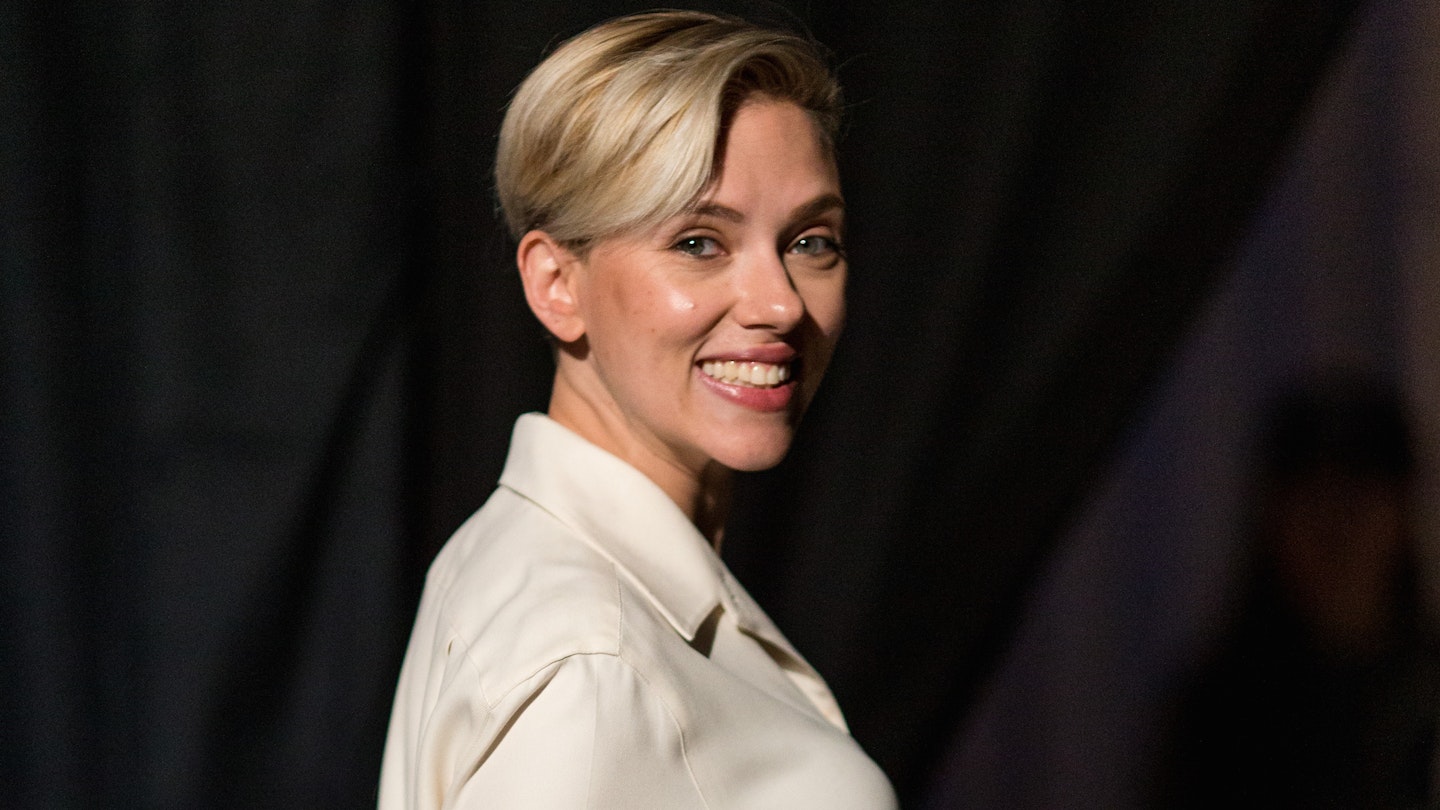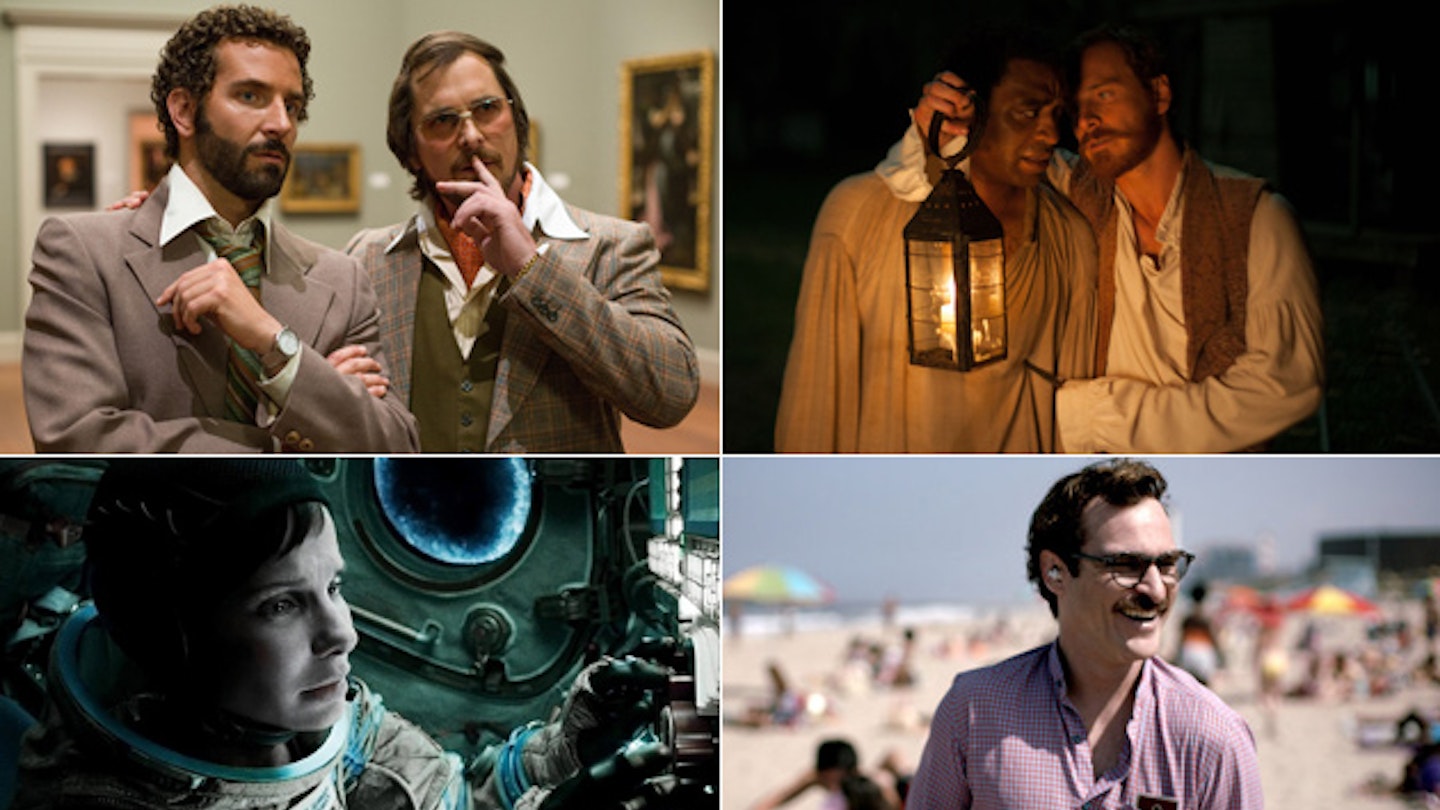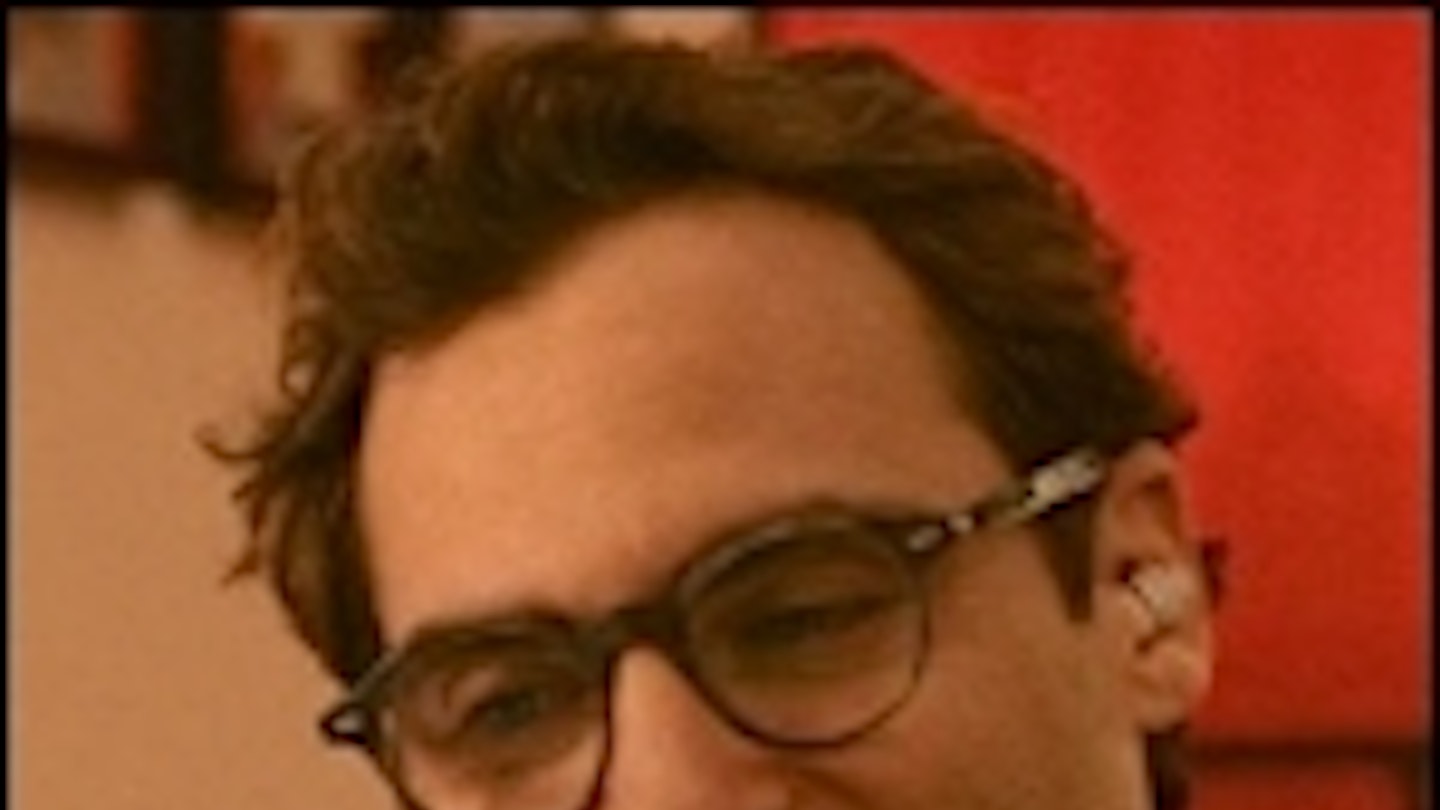Devotees of The Big Bang Theory may well recall that in episode 14 of Season 5 (The Beta Test Initiation), among customary nerd befuddlement and sub-Asperger’s commentary from Sheldon, unrepentant romantic Raj becomes enamoured with the charms of Siri. A budding romance that is literally without legs given she is the honey-voiced operating system of his iPhone. And so mild satire is achieved. For his latest symphony in the key of odd, Spike Jonze starts with the Big Bang and expands into a future that merrily accommodates in-depth tête-à-têtes with a loquacious computer system and a flesh-tech romance becomes eerily plausible. Wait, a boy who gets sweet on a computer programme? We should tweet that.
Joaquin Phoenix’s Theodore Twombly is a typically Jonzian sad sack dolled out in nerd spectacles, frowzy moustache and a waistband en route to his navel (the future, it turns out, is where the mild things are). Unable to move on from the termination of his marriage (to Rooney Mara’s striving novelist Catherine), he opts to turn on the female-voice option while downloading the state-of-the-art ‘OS-1’ system onto his PC and meets ‘Samantha’ (as voiced by Scarlett Johansson, an eleventh hour replacement for Samantha Morton — see Look Closer).
Programmed to adapt to his needs, Samantha gets him. She re-organises his hard-drive and generally gets his life in order. He, in turn, is soon enchanted by their easy intimacy, fuelled by late-night talks about big things. Via earpiece, handset (or “portal”) and an omnipresent Wi-Fi they need never part. In all but bodily presence
they are dating, although the sex proves somewhat unconventional (Jonze conceives lively variations on verbal intercourse). In other words, they are fully compatible. So yes, you could think of Her as an arty reboot of Electric Dreams.
Cooped up in Theodore’s quietly solipsistic existence, Phoenix is a model of unexpected restraint. The vast majority of his performance is restricted to twitching and wincing in close-up, an expert study in micro emotion. Not that you entirely shake the worry that he’ll let off one of those trademark emotional smartbombs at any moment. And Johansson’s husky voice, if familiar (you can’t help but picture her floating in cyberspace), achieves an astonishing variety of mood: delight, curiosity, petulance, horniness, ecstasy...
Jonze’s script elaborates on its high, high concept with witty extrapolations on current memes: Theodore’s job is composing sentimental (electronic) mail on behalf of time-strapped customers at BeautifullyWrittenLetters.com; he craves possession of actual books, which have staged a revival as pricey antiques; whereas video games now fill entire walls, with nasty sprites that assault inept players with foul-mouthed tirades (as voiced by Jonze himself).
‘His’ life is not entirely devoid of human interaction. We meet his maritally-challenged neighbour Amy (Amy Adams), a sweet-natured game designer who actually envies his digital hook-up, although Olivia Wilde’s unstable blind date (another potential lover he hasn’t laid eyes on) just serves to show what Samantha has to offer. In perhaps the strangest and saddest sequence of a multitude of oddities, Samantha calamitously arranges for a silent human surrogate to play her in bed, only for Theodore to reject her as too fake.
This is less funny ha ha than funny uh-huh? The atmosphere is gently ironic and unhurried, giving us the time to drink in the quirky detail. Theodore’s brilliantly conceived Los Angeles of the future is presented in radiant city-surfing wide shots of twinkling high-rises like a disinfected Blade Runner (the film was partially shot in Shanghai). Or, perhaps, a computer simulation. Yet this pleasantscape, with its Michael Mann apartments, antiseptic workspaces and high-speed rail networks (Jonze dreams of an automobile-free world) only stresses the numb, lonely detachment of its inhabitants. Come rush hour, commuters drift along walkways through harmonised urban spaces, oblivious to one another as they gas with their computers, transforming the entire city into a nuthouse. You could call it a blisstopia.
No prizes for surmising that Jonze is fretting as much about right now as some time tomorrow. For all its whimsy, Her provides a health-check on our digitally prescribed era where human contact has been relocated to social media, dates are pre-approved by algorithms, and the idea of computers as legitimate substitutes for friends and paramours is becoming highly probable. Do we even exist if we’re not online?
Yet, he doesn’t cease his enquiries there. What, he wonders, if relationships between man and operating system (admittedly one evolving into self-consciousness) could truly click? It’s that oldest of questions given the oddest of contexts — what is love anyway? How distinct are humans and programmes? Samantha seems far more eager to sample experience than mopey carbon-unit Theodore. Darker, more disturbing ideas run beneath the gleaming surface. What of human contact? What of touch?
Michel Gondry’s Eternal Sunshine Of The Spotless Mind covered similar, paradoxical ground — the use of vivid sci-fi accessorising to unravel the complexities of the human heart. Like Gondry, Jonze chooses to explore unsteady emotions within imaginary spaces: the island of the Wild Things, John Malkovich’s brain, Nicolas Cage’s perm, and now Her’s pastel Los Angeles of tomorrow or whenever. Dates remain non-specific.
Much like Theodore, however, Jonze struggles with closure. The honeymoon phase over, his creepily topical love story becomes sidetracked in a dour pathology of divorce as Theodore’s relationship with Samantha cracks along identical fault lines to those that ruined his flash-backed marriage. Their exchanges become lengthy and leaden, and the witty buoyancy, the easy play of the initial satire, deflates into the kind of trite psychobabble you could probably churn out on a computer. With even his operating system losing interest, it’s long past time to wake up to the fact it is probably him, not ‘her’.
Then, this could all be part of the joke: that Samantha’s growing self-awareness leads her inevitably to self-indulgence. In a swing towards more standard sci-fi practices, other sentient OS-1s get in touch with Samantha, and together they plot an evolutionary upgrade beyond human limitations. Theodore might be all too human.
Either way, this is Jonze’s most significant film yet. Enlightened awards ceremonies beckon.








